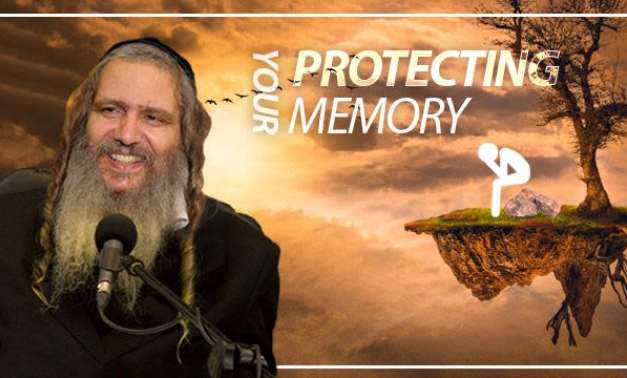
The World of Becoming
When we strive to better ourselves, it’s like working to acquire the best possible seat we can attain in order to enjoy an amazing performance…

The World to Come is the place where we experience the eternality of what we become in this world—the World of Action. It’s all about growth to our full potential. You see, in Heaven, G-d already knows what He intended for each of us when He created us, but we don’t know. So our job is to strive to be the best version of ourselves that we can be by using our talents to transform our behavioral deficiencies into strengths. Through continual and consistent self-evaluation we refine our thought process, our speech and our personalities by way of our actions to match our Divine soul. We use our strengths to help others. We work on our relationships with others and with G-d. When we consistently grow and improve, we move toward the vision that G-d has for each of us.
I recently began to analyze the word “becoming”. When something is described as “becoming”, this means that it fits us, as when one might say, “That new hat you are wearing is very becoming to you.” Our job, then, is to become “becoming.” We do this through honest self-evaluation: We pay close attention to what our loved ones say about us to help us. We take to heart constructive advice by becoming good listeners, and we use this information to refine ourselves. By becoming more “becoming”, if you will, we aspire to match the vision of what G-d is rooting for us to achieve. Even if we fall a bit short, by making this a goal, we elevate our lives. The ideal version of ourselves is called the yehida, our perfect self—the self of our highest spiritual potential.
When we strive to better ourselves, it’s like working to acquire the best possible seat we can attain in  order to enjoy an amazing performance. In the World to Come we can expect the best possible reward commensurate with our effort in the fulfillment of our purpose. We anticipate an indescribable feeling of calm, satisfaction, and sheer bliss. So, if this is what a life of seventy, eighty, ninety, one hundred twenty years on this earth is all about—-an opportunity for an eternity of ecstasy and paradise—-it would make sense to devote our lives to the elevation of our soul’s purpose. Becoming a giving, honest, devoted, refined, generous, helpful, and magnanimous human being is the purpose of life. The closer we come to the goals we set for ourselves through actions that portray these qualities, the more tranquil and satiated our souls will become at the end of our physical journey in the World of Action.
order to enjoy an amazing performance. In the World to Come we can expect the best possible reward commensurate with our effort in the fulfillment of our purpose. We anticipate an indescribable feeling of calm, satisfaction, and sheer bliss. So, if this is what a life of seventy, eighty, ninety, one hundred twenty years on this earth is all about—-an opportunity for an eternity of ecstasy and paradise—-it would make sense to devote our lives to the elevation of our soul’s purpose. Becoming a giving, honest, devoted, refined, generous, helpful, and magnanimous human being is the purpose of life. The closer we come to the goals we set for ourselves through actions that portray these qualities, the more tranquil and satiated our souls will become at the end of our physical journey in the World of Action.
The Torah teaches us the path to take involving doing those things that demonstrate the most revered qualities. So if we desire to be giving but we feel stingy, then all we have to do is act in a generous way by forcing ourselves to have guests over even when it feels uncomfortable or giving ten per cent of our net income to charity even if it feels very hard for us to do. The harder it feels the more merit we accrue in this world. The rabbis tell us to do good even if you don’t feel like it. When we move beyond our comfort zone in a positive way, G-d takes notice, and He is more likely to relate to us in a way that is above nature. Why? It makes sense that if we are willing to act above our natural tendencies, G-d will do the same for us measure for measure.
To become “becoming” (attractive) on a soul level we need to push ourselves to do good deeds. So, if we want to be seen as a loving person, we need to start acting in a loving way. We can’t be afraid to stretch and get involved and to take risks. Some examples are to smile even if we are not in a good mood; to offer to help clean up when invited to dinner even if it feels foreign to do that; to reach out to comfort a child we know even if we feel inhibited or reticent about doing so; to read to a senior citizen even if we think we’re not such a great reader; and to exhibit self-restraint when our own child is having a temper tantrum, remembering it’s coming from Hashem for our own benefit. We all know the old adage—action speaks louder than words. When we act in a positive way, we bring forth the quality that we want to become, and, with practice, the action becomes a habit.
The concept of “fake it till you make it” becomes even more alive with a story called “The Happy Hypocrite” written by British author Max Beerbohm. The story goes something like this: A gentleman named Lord George Hell had a very negative disposition, and his face physically reflected his shortcomings. George fell in love with a very kind, sweet girl who was repelled by his appearance. So he went to a master artist who fashioned a kind, handsome mask for George to wear. The mask was so perfectly designed that it appeared like a real face. The girl, then, fell in love with George, and they were married. After a while, an old enemy ripped off the mask to expose Lord Hell’s plot, but miraculously the face underneath the mask was identical to the mask itself. What occurred was a major transformation. Sufficient time had passed for Lord Hell to do many good deeds—to act in accordance with the mask that concealed his old identity. Over time the change that was occurring from within affected his outer appearance. He was able to re-invent himself in a major way.
The Mishna explains that it is wrong to inflict a bad mood on others even if we are feeling unhappy or out of sorts. When we make others feel happy by doing good and when we force ourselves to smile even if it hurts, we may be wearing a mask temporarily but, over time, the good energies overpower and neutralize the bad. When we push ourselves to do something noble, we eventually become what the action represents. When we consistently choose to do what is right over what we feel like doing in the moment, we can literally transform our physical reality. What we do—what actions we take—-affect who we are because consistently positive choices add up. This is how we develop good traits that eventually become natural by force of habit, re-creating ourselves anew. The World to Come will be filled with souls who worked on themselves, found their purpose, and strove to become so very “becoming”.







Tell us what you think!
Thank you for your comment!
It will be published after approval by the Editor.